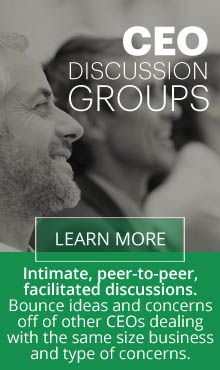 How do we think of Joan Rivers? Comedienne? TV star? Broadway star? Is she perceived as a Broadway star so she could have the usual tribute of the dimming of the Broadway lights in her honor? Some people said no, namely the Broadway League, which represents theater owners and producers. Some people said yes – 5400 signatures on a petition to “show our beloved legend the respect she deserves!” The Broadway League did reverse its earlier decision and the lights dimmed on Sept 9 at 6:45pm.
How do we think of Joan Rivers? Comedienne? TV star? Broadway star? Is she perceived as a Broadway star so she could have the usual tribute of the dimming of the Broadway lights in her honor? Some people said no, namely the Broadway League, which represents theater owners and producers. Some people said yes – 5400 signatures on a petition to “show our beloved legend the respect she deserves!” The Broadway League did reverse its earlier decision and the lights dimmed on Sept 9 at 6:45pm.
I’m not telling this story just to talk about Joan Rivers, remarkable as she was. I’m pointing out that we perceive others differently and it makes a huge difference in how we treat them. And that effects both employee and customer loyalty.
So was she more of a TV star or more of a Broadway star? How do you perceive her? Did the Broadway League put her in one ‘box’ while lots of other fans had a different perception?
Do you put others in ‘boxes’? Sure we all do. Our brains make sense of the world by forming categories and then applying something we know about one person in the category to the others. For instance, we categorize lawyers and accountants as boring people, but there are still important, for example if your feel your rights violated the use of a civil rights attorney is essential for this. We think of artsy people as ‘way out.’ We consider rich people arrogant. These are the blatant stereotypes. And we all know people who don’t fit the stereotypes.
Let’s go another level deeper. Your young employee makes a mistake. He seems careless and not detail oriented. So you start putting him into the ‘box’ with all the other careless and lack-of-detail people you’ve ever known. He’s trapped. One or two mistakes identifies the way you perceive him and listen to him. Your speech to him and how you treat him starts coming from how you perceive him (the box you put him in).
Your communication which is both speaking and listening is between you and the ‘box’, not necessarily between you and him. It starts to blind you to his other talents. Perhaps he’s a great big picture thinker from 30,000 feet and not so focused on the details. Maybe he just doesn’t know the job well enough or hasn’t yet developed self confidence. Maybe he really gets it but is covering up for someone else that he’s helping out. There are a number of scenarios that might be outside the ‘box’ you constructed.
Your customer just called to tell you that he’s not happy. You start getting defensive because that’s how you always react when you feel put on the spot. You’ve put him into an attacker ‘box’ with all the other people who have ever made you wrong. You listen to him and communicate back to him as an adversary. On the other hand, you could listen to him that he is providing you with a gift, that his pointing out a problem will allow it to be fixed so you can provide a better solution and ultimately earn more money. You could put him in your friend ‘box.’
The weird thing is that these ‘boxes’ become self fulfilling prophecies. The customer sensing your defensiveness gets more irate and becomes the actual attacker you feared. The young employee feels your disempowerment, gets anxious and makes even more mistakes.
What if you could be very aware of the categories you put people into and be totally responsible for your role in trapping them in these ‘boxes?’ What if you could train yourself to see each person more objectively?
Would the young employee feel more empowered and confident and then make fewer mistakes? Would What if instead you could create self-filling prophecies around looking for each person’s greatness? the complaining customer when carefully thanked and appreciated become a partner in creating a better solution?
Communication with customers and employees (and everyone) is a two way street, often a chicken and egg scenario. In essence you have the potential to create them in how you listen to or perceive them to be. Expect the best and that’s what you’ll get. You can bring out the greatness in people just by looking for it.

 Jeri Quinn from Driving Improved Results is an executive coach, management consultant, speaker and author who focuses on communication in her work with executives and companies. She is the author of The Customer Loyalty Playbook, 12 Game Strategies to Drive Improved Results in Your Business. With more than 40 years as a serial entrepreneur.
Jeri Quinn from Driving Improved Results is an executive coach, management consultant, speaker and author who focuses on communication in her work with executives and companies. She is the author of The Customer Loyalty Playbook, 12 Game Strategies to Drive Improved Results in Your Business. With more than 40 years as a serial entrepreneur.

